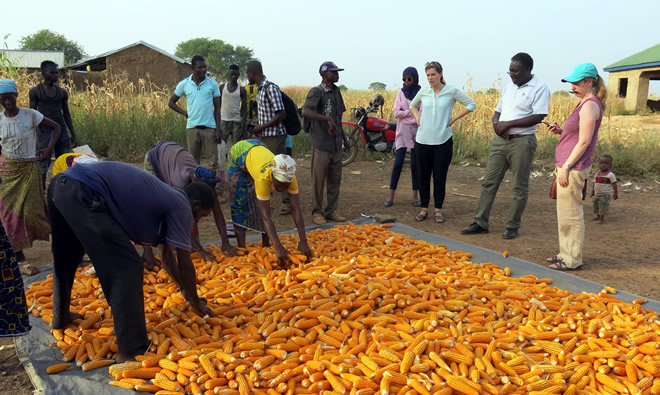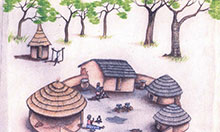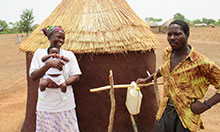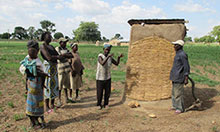
From November 1 – 2, 2016, SPRING/Ghana hosted visitors from USAID/Ghana and USAID/DC for a visit to Karaga District in the Northern Region and Bawku West District in the Upper East Region. Rebecca Fertziger, deputy director of the USAID/Ghana Health, Population and Nutrition Office, led the visit. Guests received a first-hand look at SPRING’s multi-sectoral collaborations, including with health, education, environment, agriculture, community development, and other sector organizations.
The USAID visitors met with government partners, who complimented the content and quality of technical capacity that SPRING had helped them develop, which made it possible to achieve results with infant and young child feeding (IYCF), community-led total sanitation (CLTS)/ water, sanitation and hygiene (WASH), nutrition-sensitive agriculture (particularly reducing aflatoxin in crops), anemia prevention, and social and behavior change communication. The visitors saw evidence of these outcomes at various sites, including at health facilities, where child welfare and antenatal care services had expanded due to improved IYCF counselling and quality improvement activities; in communities that embraced the CLTS/WASH-1,000 interventions and had achieved open-defecation free status; during meetings with mother-to-mother support groups and community volunteers who had adopted behaviors from SPRING’s social and behavior change media and interpersonal communication tools to become active change agents for preventing malnutrition in their communities; and at Farmer Field Schools that had reduced aflatoxin in groundnuts and improved yields of nutrient-rich crops such as vitamin A-enriched maize.
The visitors were pleased by the evident interest of program partners and by the communities’ interest, adoption, and success with various initiatives to reduce the prevalence of stunting.
Photo provided by courtesy of Joseph Ashong, USAID/Ghana Program Management Specialist for Nutrition


